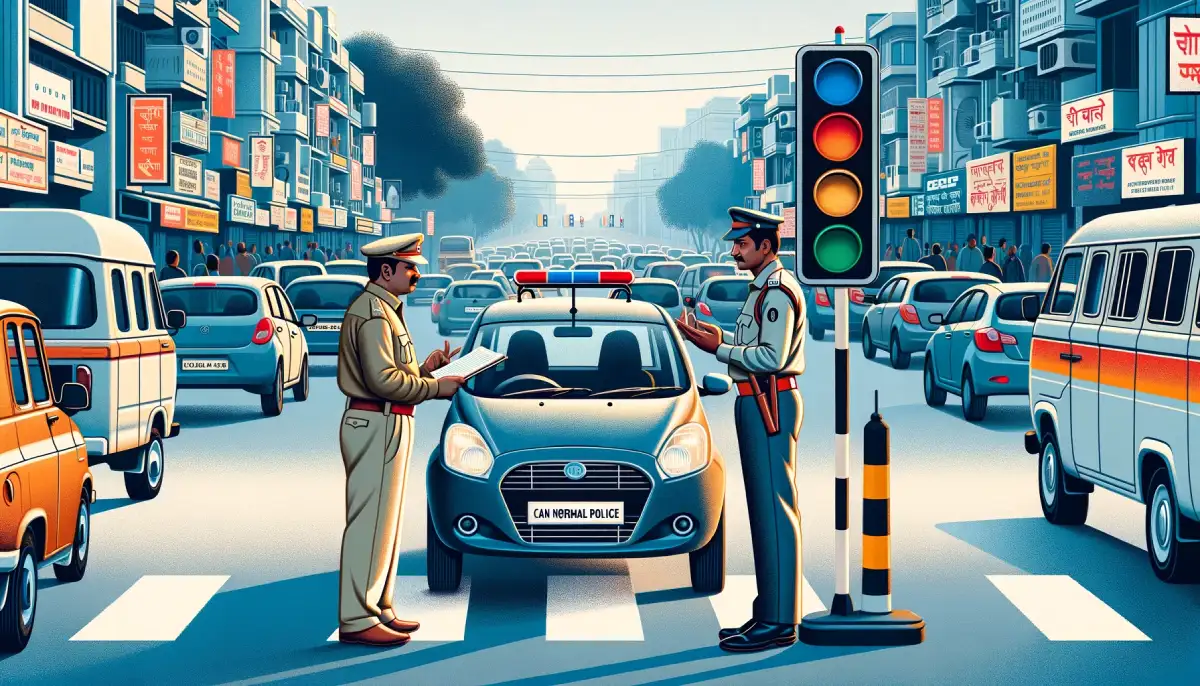

In the intricate dance of Indian traffic, the role of the police is not just to regulate but also to enforce. As drivers weave through the streets, a question often arises: Can the regular police issue challans, or is this power reserved for traffic officers alone? This article sheds light on the authority vested in police personnel and what it means for the everyday driver.
The Indian traffic system is a complex network governed by a set of rules and regulations designed to maintain order and safety. At the heart of enforcing these rules are the challans issued for any infringement.
1. The Legal Framework:
According to the Motor Vehicles Act, police officers have the authority to issue challans for traffic violations. This includes not just traffic police but any police officer who has been given the requisite power by the state government.
2. On-the-Ground Reality:
In practice, while traffic police are primarily responsible for managing road rules, regular police can indeed issue challans. Their jurisdiction might typically cover offenses that have broader security implications.
3. Documentation and Verification:
When a police officer issues a challan, they must provide proper identification and follow the due process, ensuring transparency and accountability.
Whether it's a traffic officer or a regular policeman, the process begins with noting down the violation. The officer will then issue a challan slip, which details the nature of the offense and the corresponding fine.
2. Payment and Receipt:
Once a challan is issued, the motorist has the option to pay the fine on the spot, online, or at specified counters. It's crucial to obtain a receipt post-payment, which serves as proof of settlement.
Also Read:- Who Invented Car?
With the advent of technology, the process of issuing and managing challans has become more streamlined. E-challan systems enable officers to generate challans using handheld devices, ensuring accuracy and efficiency.
As a driver, it's essential to be aware of your rights and the authority of the officer issuing a challan. Always ask for identification and ensure that the challan is legitimate. Remember, the goal of these fines is not to penalize but to encourage adherence to traffic laws, ensuring safety for all.
The authority to issue a challan extends to regular police officers, reflecting the comprehensive approach to traffic management in India. As responsible citizens, understanding this aspect of traffic regulation can lead to more informed interactions with law enforcement and a smoother driving experience.
Also Read:- Hatchback Cars Under 5 Lakhs in India
Stay informed, drive responsibly, and contribute to the harmony of India's bustling roads.